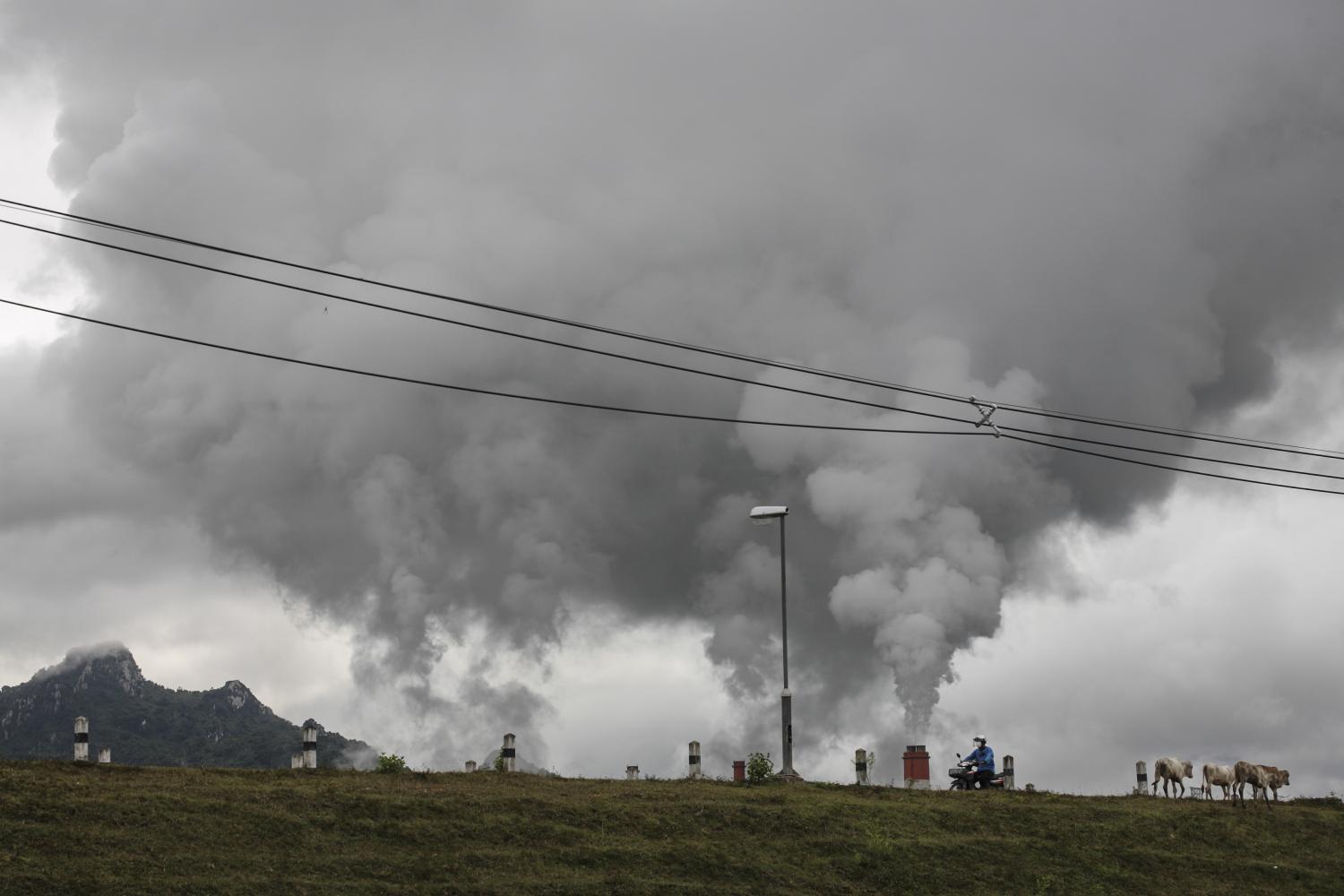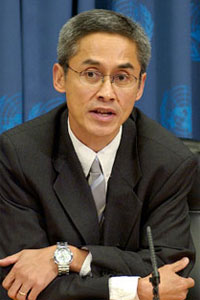
A year ago, the international community was heartened by the UN General Assembly's proclamation of the right to a clean, healthy and sustainable environment as a human right to be enjoyed by all, universally. In essence, what does the right mean?
A recent international seminar on the Right to Clean Air organised by leading environmental groups in Thailand, backed by Ajarn Noi Kanongnij, a lawyer of environmental fame, provided a timely opportunity to probe the intricacy, if not mystery, of that right. In essence, the heart of the issue is not complicated, but the crunch is whether it is implemented effectively. As a human right, it is based on our entitlement, our claims to or against the state as the entity with a duty to respond. There are two key elements behind the scenario: the procedural angle and the substantive angle.
The procedural angle is based on at least three components: access to information, people's participation, such as through environmental impact assessment and public hearings, and access to justice interlinked with remedies. Underlying that premise, there is the advocacy of environmental protection by defenders of human rights and the environment which should be respected.
On the substantive side, there is a need for adequate measures to tackle global warming, climate change and air pollution anchored in the right to life, the right to the highest standard of health, and other rights which enable living beings to enjoy a clean and healthy environment. For example, on global warming and climate change, there is a need to decarbonise by shifting from fossil fuels to clean and renewable energy, such as solar and wind-related sources, as well as national adaptation to prepare for natural disasters.
The premise of sustainable environment invites longer-term measures, as an inter-generational dynamic. Interestingly, there is a case pending before the International Court of Justice, seeking advice on state-related obligations relating to climate change, with attention to the impact on developing countries, such as those suffering from sea level rise, and groups and individuals of this and next generations. There are UN Special Rapporteurs on the Environment and on Climate Change as part of the global human rights monitoring. There are also updates by means of the Conference of Parties (COP) propelled by the Paris Accord on Climate Change, underpinned by the UN Framework Convention on Climate Change. The next COP28 global conference is due in Dubai this year.
Another important consideration as part of the right mentioned is the vulnerability factor impacting upon specific groups. This ranges from women to children, seniors, persons with disabilities, and persons with other status. A recurrent example from developing countries is that home-based pollution caused by the burning of various types of wood and leaves is harmful to pregnant women, and this takes place among poorer communities due to lack of financial means to access safer forms of energy, conditioned by poverty, inequity and inequality. This is partly linked with the issue below concerning whether a new law is needed to counter air pollution in Thailand to ensure clean air. This would cover not only ambient air caused by the energy sector, transport and industry, but also polluted air in the domestic setting and the agricultural spectrum, such as slash-and-burn techniques.
With regard to business activities, there is a now a clearer architecture for the duties of the state and the private sector under the UN Guiding Principles on Business and Human Rights. The business sector should undertake "due diligence" by assessing the impact of its activities from the pre-operational to post-operational stages to identify potential and actual damage, make their monitoring reports public, and commit to reduce risks. This "due diligence" element is becoming mandatory in Europe, while it is still voluntary in Thailand.
Those developments are now intertwined with the call for environmental and climate justice. This has both a judicial angle and a non-judicial angle. The former is linked with burgeoning court cases globally whereby states and businesses are being litigated against for breaches of their duties. Recently, in Montana, United States, a youth group took the state authorities to court for inadequate action to curb fossil fuels, coupled with lack of environmental impact assessment in its environmental law -- and won.
In Thailand, there have been various court cases where litigation is being used as a pressure for accountability. Recently, the Administrative Court ordered one of the ministries to issue instructions to factories to monitor and reveal their emissions which might affect air quality. A comprehensive draft law to ensure clean air has also been proposed by environmental actors based on the right to a sustainable environment identified above, encompassing the procedural and substantive angles, vulnerabilities and access to justice and remedies. While litigation is a possible remedy, leading to compensation, non-judicial measures are also advocated internationally. The latter can include restoration, restitution, non-repetition of malpractices and apologies.
Other needed measures include the need for more local plans, programmes and resources to help communities opt for responsive practices, together with education and capacity building, monitoring and data generation, and eco-friendly technology.
A key example is that in regard to the periodic haze covering Northern Thailand, there is still a lack of cost effective and people-based technology to enable farmers to avoid burning sugar cane plants and other crops. There is a need to integrate environment friendly methods into the business relationships linked with these cash crops. This is also a cross-border issue which needs leverage for cooperation between neighbouring countries both to prevent and remedy the pollution, with stronger enforcement of the longstanding Asean agreement to counter cross-border haze.
The hinterland behind all this is inevitably the issue of political and commercial power, vested interests, and monopolies with a cascading supply chain whereby the smaller stakeholders are often exploited by the bigger players.
The right to a clean, healthy and sustainable environment also requires creative checks-and-balances in the power fulcrum, hopefully with more political and social will of an empathetic kind.
Vitit Muntarbhorn is a Professor Emeritus at Chulalongkorn University. He has helped the UN as UN Special Rapporteur, Independent Expert and a member of UN Commissions of Inquiry on Human Rights.
